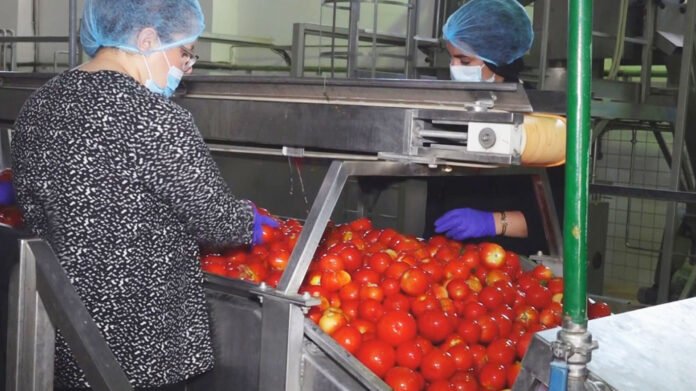Kurdistan continues to strengthen its local agriculture through the Harir tomato paste factory, which now plays a key economic role. The facility turns 100 tons of fresh tomatoes into 25 tons of tomato paste every day. As global demand increases, particularly from the United States, the factory has become a symbol of success in regional agro-industry.
The tomato paste production in Kurdistan continues to attract new interest due to its chemical-free process and high-quality output. Local farmers benefit directly from the facility, which buys large volumes of tomatoes every season. Drivers also gain steady work by transporting tomatoes from farmlands to the factory.
Factory Director Shwan Hamid explained that the plant operates on an eight-hour schedule. It currently meets around half of the Kurdistan Region’s tomato paste demand. He also noted that seven kilograms of tomatoes produce one kilogram of paste. This efficiency underscores the importance of high-yield farming in the region.
Tomato paste production in Kurdistan helps farmers avoid relying on middlemen. They sell their tomatoes directly to the factory, which pays fair market prices. This setup ensures sustainable income for rural communities. Additionally, the factory purchases tomatoes in bulk, creating opportunities for truckers who transport the produce daily.
Renass Sherzad, one of the transport drivers, confirmed that he made several trips from the capital to Harir. His latest load included 75 tons of tomatoes harvested entirely within Kurdistan. These deliveries demonstrate the facility’s strong connection to the local economy.
Beyond Kurdistan, the factory exports tomato paste to six countries. These include Saudi Arabia, Jordan, Germany, Sweden, the United Kingdom, and the United States. Factory management confirmed that American buyers lead in demand, placing consistent orders for the paste. This global reach highlights the growing trust in Kurdistan’s agricultural products.
Tomato paste production in Kurdistan proves that local industries can compete internationally. The Harir factory remains free from chemical additives, appealing to health-conscious markets. Government officials praise the facility as a model for future agro-industrial investment.
As more regions turn to clean, locally produced food, Kurdistan’s tomato paste production will likely continue expanding. Officials plan to increase capacity if tomato harvests rise in the coming years. Their goal is to meet both domestic and foreign demand while improving the region’s agricultural economy.

